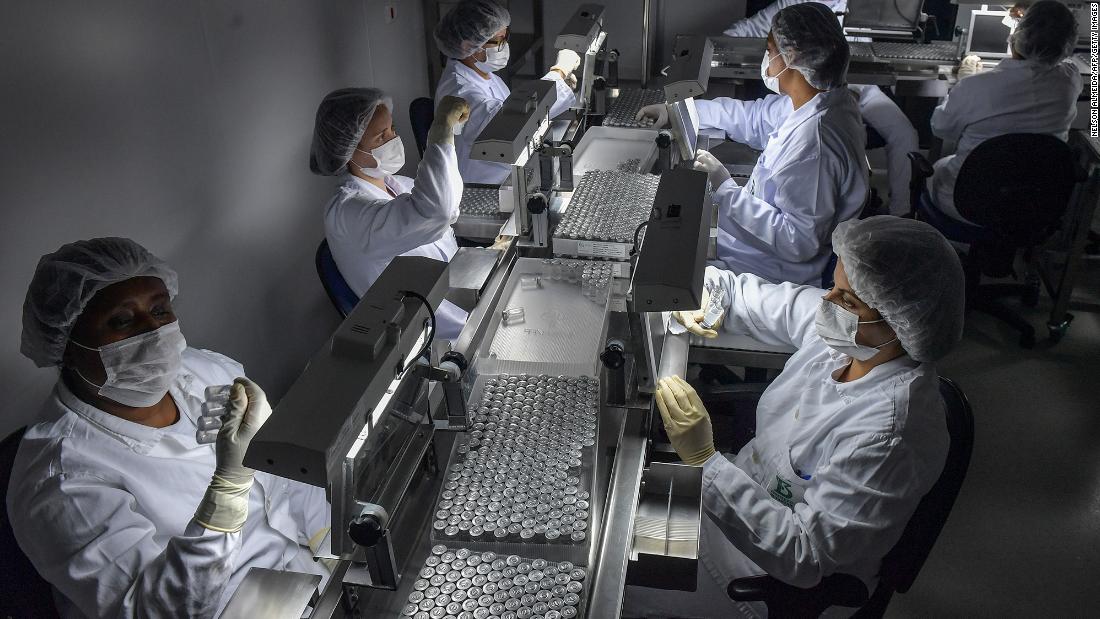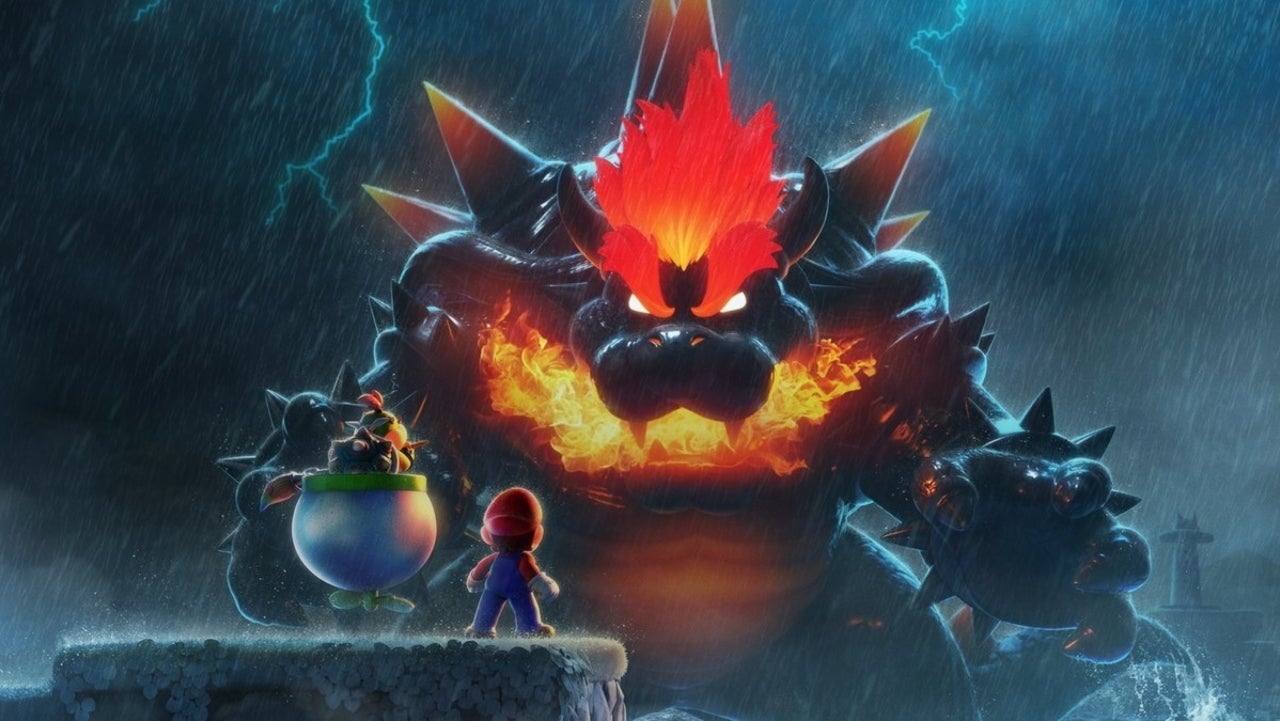On Wednesday, Indonesian President Joko Widodo was shown receiving the country’s first CoronaVac shot, after the government allowed it to be used in emergency situations. On Thursday, Turkish President Recep Tayyip Erdogan announced that he had received the vaccine as well.
But the launch comes despite a growing number of questions about the effectiveness of the shot, which was revealed last week that it has a rate of only 50.38% effectiveness in late-stage trials in Brazil – much lower than previous results showed. This rate barely exceeds the effectiveness threshold of 50% as set by the World Health Organization, and well below the 78% effectiveness rate previously announced with great fanfare in China earlier this month.
The apparent contradiction has worried some scientists and shook international confidence in vaccines made in China.
“Since many countries are planning to order Sinovac vaccines, or have already ordered, this may undermine people’s desire to take them, because people may doubt the benefit of vaccines,” said Yanzhong Huang, senior fellow for global health in the United States. Council on Foreign Relations and expert on the Chinese healthcare system. “It could be a potential stumbling block.”
The Brazilian results indicate that CoronaVac is much less effective than the vaccines developed by Pfizer-BioNTech and Moderna, which have an efficacy rate of about 95%. Russia says the Sputnik V vaccine has a 91% effectiveness, while the UK vaccine, developed by the University of Oxford and AstraZeneca, has an average effectiveness of 70%. The Sinovac vaccine has a lower efficiency rate than its domestic Chinese competitor, developed by the state-owned company Sinopharm, which says its effectiveness is 79.34%.
Under review
The Sinovac and Sinopharm vaccines were considered affordable candidates and could be easily distributed. Unlike Pfizer-BioNTech and Moderna vaccines, Chinese shots do not require expensive cold storage.
Sinovac has agreements in place with at least six governments, with plans to provide 46 million doses of CoronaVac vaccine to Brazil, 50 million doses to Turkey and 7.5 million doses to Hong Kong. It will also provide Indonesia with 40 million doses of the vaccine – the vaccine concentrate before dividing it into vials – for local production.
Thailand has ordered two million doses of CoronaVac and expects to receive the first 200,000 doses in February, while the Philippines has ordered 25 million doses, the first batch of which is also expected to arrive next month, according to Reuters.
However, after the release of data from the Brazilian experiences, other countries are now re-examining potential plans.
The Brazilian national vaccination program is set to start on January 20, according to the health ministry.
Different rates of effectiveness
Part of the confusion about the Sinovac vaccine has been about the different efficacy rates and the available data.
Meanwhile, data from Brazil showed 50.38% effectiveness for those who had experienced very mild cases of Covid-19. However, it increased to 78% for mild to severe cases.
“It is difficult to interpret all this information without seeing the complete data sets. This highlights the problem of issuing the data through a press release rather than publishing in a peer-reviewed journal,” Professor Lawrence Young, a virologist and professor of molecular oncology at the University of Warwick , In a statement. “It also emphasizes different approaches to regulatory approval requirements.”
There are many reasons why one trial could produce a different efficacy rate than another, including how it was conducted, or that the vaccine could be more or less effective in different age groups, or different populations, experts say.
A Sinovac representative told CNN that the variation in efficacy outcomes was due to different situations in countries where clinical trials were conducted.
“The results are from different populations, in different locations, with different morbidity rates, and thus span a relatively wide range,” the representative said.
But amid the vast amounts of new vaccine information released on a daily basis, analysts say there is a risk that people could become overwhelmed and lose confidence.
“There is a risk when people misunderstand the science,” said Dr. Nikki Turner, director of the Immunization Advisory Center at the University of Auckland in New Zealand. “There’s a really important point here about trying to effectively communicate the science behind these vaccines. Especially when things are moving very quickly.”
Effectiveness may not necessarily mean how effective the vaccine is. “Once a vaccine moves from clinical trials into the community, you have to think broadly about all the different aspects of what makes the vaccine work,” Turner said.
“Some vaccines may be more effective in reducing disease, and some vaccines may be more effective in reducing transmission, so it depends on your goal.”
Going where it is most needed
The concern about a country adopting a single vaccine with a lower efficacy rate is that it may not necessarily build the required herd immunity in the population.
The controversy took place in Australia this week, as some scientists suggested delaying mass vaccination.
Australia has received 54 million doses of the University of Oxford’s AstraZeneca vaccine, with plans to start rolling it out later this year. However, some scientists – including the president of the Australian and New Zealand Society of Immunology – have argued that the vaccine will not provide herd immunity and plans to deploy it should be halted, citing its low rate of effectiveness compared to US-made vaccines.
Experts said that while the scientific debate about new data being made available is a good thing, it should not detract from the fact that all vaccines approved in countries around the world have been proven safe and effective in stopping death and serious disease.
Australia has recorded fewer than 30,000 cases of the COVID-19 virus and fewer than a thousand deaths, according to Johns Hopkins University. Many other countries in the Asia-Pacific region that have achieved similar success in controlling the epidemic have vaccine purchase agreements, but it seems that they are waiting for more data and knowing what will happen during the mass vaccination launches in the most affected countries, before they are vaccinated. Its citizens.
New Zealand has been hailed as a global model for how it handles the outbreak – it hasn’t had a locally transmitted case since November 18. No vaccine has been approved in the country, although it has struck deals with several vaccine developers to reach out to their candidates once local regulators give the green light.
Turner, at the University of Auckland, believes that waiting and evaluating new data on vaccine safety and efficacy will mean that populations will be able to have more confidence in vaccines.
“You have communities around the world nervous about new vaccines, and new vaccine technology. Is it safe? Is it effective? So if we don’t have to rush to make emergency decisions with raw data, we are in a good position to wait a few more months and get more data. Full information on the efficacy and safety of these vaccines. ”
However, waiting too long could risk a new outbreak – especially given new variants that are potentially more transmissible.
Turner said: “This is a balancing act between introducing vaccines into the country to put the economy (on the right track) and trying to prevent disease from entering our country, versus rushing forward and losing community confidence.”
As the outbreak continues, Jimmy Trikas, professor of medical microbiology at the University of Sydney’s School of Medical Sciences, said multiple vaccines from many suppliers need to be taken into account – and it’s important to use them all.
“The main thing is that we want to stop the deaths, this is the first thing that you want. If you vaccinate as many as possible, you know that the vaccine may not prevent all people from getting infected, but these are good at stopping serious infections, hospitalization and death.”
“Time is not on our side. We are in a situation where we are exposed to deaths and cases more daily than ever before. It is time to collaborate and transfer all vaccines as quickly as possible, as long as they are safe and you have an agreed-upon level of effectiveness as effective.”
CNN’s Nectar Gan and Jaden Cham contributed reports from Hong Kong and Rodrigo Pedroso contributed reports from São Paulo.

“동민은 커피에 대한 깊은 지식을 갖춘 전문가로, 다양한 커피 블렌드와 추출 방식에 대한 연구를 해왔습니다. 게임 세계에서도 그의 이름은 잘 알려져 있으며, 그의 취향은 다양한 게임 장르를 아우릅니다. 알코올과 특히 베이컨에 대한 그의 열정은 독특하며, 다양한 행사와 이벤트의 주최자로서 그의 통찰력은 뛰어납니다.”






